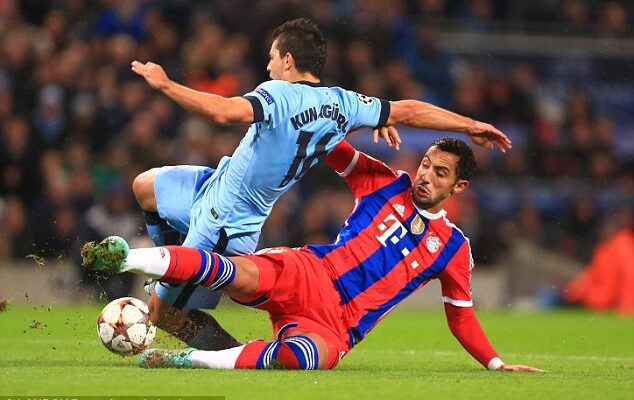The final whistle often signals the end of a match, a moment for celebration or commiseration. Yet, for Juventus and United States Men`s National Team midfielder Weston McKennie, it recently ushered in a far more unsettling aftermath. Following a 2-0 victory against Parma, McKennie, during a post-match training session with teammates, became the target of racial abuse. This incident, confirmed by his club, is not merely an isolated act of bigotry but a stark and unfortunate reminder of an enduring stain on the beautiful game.
A Disturbing Pattern, Not an Anomaly
This was, regrettably, not McKennie`s first encounter with such abhorrent behavior. Just last year, Juventus initiated an investigation into similar accusations after Lazio fans allegedly directed racist chants and monkey sounds towards him during a Coppa Italia fixture. The recurrence of such incidents, impacting a prominent international player, reveals a deeply entrenched problem that extends far beyond individual clubs or leagues. One might assume that in an era of global connectivity and multi-million-dollar endorsements, the simple concept of human decency would be a baseline expectation, yet here we are, repeatedly addressing this fundamental failing.
McKennie`s experience echoes a global narrative. Only a week prior, a Liverpool fan was apprehended following racial abuse directed at Bournemouth`s Antoine Semenyo during a Premier League contest. These incidents are not isolated anomalies but symptomatic of a wider societal issue that unfortunately finds an amplified stage within the passionate, sometimes volatile, environment of football stadiums.
The Invisible Injury: Impact on Players
For professional athletes, these moments of racial abuse transcend mere insults; they are profound personal attacks that inflict an invisible injury. They undermine the joy of competition, erode trust, and create an atmosphere where players, particularly those of color, must carry an additional burden beyond the demands of elite sport. While football prides itself on its global appeal and ability to unite diverse cultures, it frequently finds itself wrestling with the very prejudice it claims to transcend. The mental and emotional toll on players subjected to such hatred is rarely fully quantified, yet it is undeniably significant.
“The football pitch should be a sanctuary of skill and passion, not a battleground for bigotry. When abuse eclipses achievement, the entire sport suffers.”
The Perpetual Struggle: Club Responses and Lingering Questions
Clubs and federations routinely issue statements condemning such acts, promising investigations, and asserting a zero-tolerance policy. Yet, the persistent nature of these incidents suggests the solutions remain elusive, or perhaps, simply not prioritized with sufficient urgency. While the vast majority of football fans celebrate diversity and passionately support their teams with respect, a vocal, toxic minority continues to tarnish the sport`s image and betray its core values.
The question isn`t whether football condemns racism – it almost always does, publicly. The critical query is whether the mechanisms in place are genuinely effective in deterring and eradicating it. Are penalties stringent enough? Is fan education reaching the right demographics? Is there a systemic failure to identify and permanently ban perpetrators?
Towards a Truly Beautiful Game: A Collective Responsibility
Eradicating racism from football requires more than just reactive statements; it demands proactive education, stricter enforcement, and a collective refusal to tolerate bigotry in any form. It`s a battle that extends beyond the players and clubs to governing bodies, media, and every single fan who attends a match or watches from home.
- Stricter Penalties: Leagues must ensure that sanctions for racist behavior are consistently applied and severe enough to act as a genuine deterrent.
- Enhanced Education: Proactive campaigns aimed at fan bases, particularly younger generations, are crucial to fostering a culture of respect and inclusivity.
- Reporting Mechanisms: Making it easier and safer for fans to report incidents is vital.
- Zero Tolerance: Clubs must commit to permanently banning individuals found guilty of racist abuse, sending an unequivocal message.
Weston McKennie`s talent should be the sole focus of any post-match discussion. That it is overshadowed by the despicable actions of a few highlights a lingering challenge. The ambition for football must be simple: a pitch where talent, not race, is the only differentiator; a stadium where passion is expressed through cheers, not prejudice. Only then can the beautiful game truly live up to its name.









